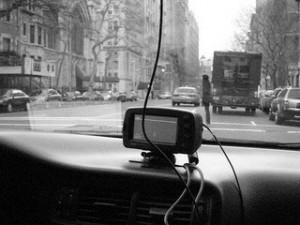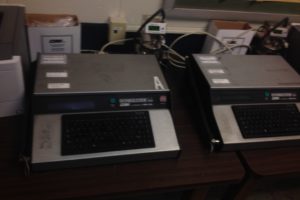If a law enforcement agency wants to track your car with a GPS device, do they need a warrant to do so? For many years, it has been unclear whether the installation of a GPS device on a vehicle and subsequent collection of location data requires a warrant. This confusion, coupled with the widespread availability of inexpensive and accurate GPS devices, led to the warrantless installation of thousands of such devices by the Federal Bureau of Investigations.
In 2012, the U.S. Supreme Court issued a landmark decision in United States v. Jones. While the Court’s ruling answered some questions about GPS tracking by defining the installation of a GPS as a “search” under the Fourth Amendment, there is still debate as to whether GPS tracking by law enforcement officials requires a warrant.

It could be years before the nation’s highest court rules definitively on the issue, so for now we must look to lower courts for guidance. A recent decision by the United States Court of Appeals for the Third Circuit (which includes Delaware, Pennsylvania, and New Jersey) held that police must obtain a search warrant in order to install and track the location of a vehicle with a GPS device. This post will discuss the Third Circuit opinion in United States v. Katzin.
A String of Burglaries
In 2009 and 2010, a wave of pharmacy burglaries struck Delaware, Maryland, and New Jersey. Many of the pharmacies that were burglarized were Rite Aid pharmacies. In several of the burglaries, the pharmacy alarm system would be disabled when the external phone lines were cut.
The local police worked with the FBI to find a suspect, and three emerged in May 2010. An electrician named Harry Katzin had been caught burglarizing a Rite Aid pharmacy. In addition, his brothers (Mark and Michael) had criminal histories that included arrests for theft and burglary. Investigators began to receive reports that Harry Katzin was spotted around Rite Aid pharmacies throughout the three states.
In October 2010, police in Pennsylvania discovered Harry Katzin crouching beside a Rite Aid after responding to reports of suspicious activity. They discovered the following day that the phone lines to the pharmacy had been cut. The next month, Harry Katzin and one of his brothers were approached by police outside a different Rite Aid while sitting in their Dodge Caravan. The police searched the vehicle, and discovered electrical tools, gloves, and ski masks. After this, the police continued gathering additional evidence about the brothers’ potential involvement in the robberies.
GPS Device Installed on a Minivan
In December 2010, the FBI consulted with the United States Attorneys’ Office. Without obtaining a warrant, the FBI affixed a “slap-on” GPS tracker (which is battery operated and attaches magnetically to the exterior of a target vehicle) without first obtaining a warrant.
The GPS tracking device yielded the results police sought after only a few days. Using location data, the police were able to see that the Katzin van was parked in close proximity to a Rite Aid that was burglarized. When they stopped the van, they found stolen merchandise and the three Katzin brothers inside.
Motion to Suppress GPS Evidence
The brothers moved to suppress the evidence discovered in the van. The United States District Court for the Eastern District of Pennsylvania ruled in favor of the brothers and suppressed the evidence in a decision that can be read in full here. The government appealed, seeking to have the evidence of the brothers’ whereabouts they obtained through the GPS device admitted in court.
Third Circuit Rules in Favor of Privacy
By the time the appeal reached the Court of Appeals for the Third Circuit, the U.S. Supreme Court had issued its decision in the Jones case. Thus, it was clear that the instillation of a “slap-on” GPS device was a search. But due to the somewhat complicated nature of the Court’s opinion, the issue of whether such a search required a warrant was left open to question.
The government lawyers arguing for the suppression to be reversed argued that no warrant was needed. A search warrant requires approval from a magistrate judge and investigators must demonstrate that they have probable cause to conduct the search. But the Katzin brothers disagreed. Their lawyers argued that this type of search, which nets a tremendous amount of revealing data, is one that should require a warrant.
The court agreed. They held that the instillation of a GPS device on a vehicle requires a warrant supported by probable cause. As a result, the evidence of the Katzin van’s proximity to the burglarized evidence cannot be used in their criminal trial.
Image Courtesy of Flickr User alex.lines

